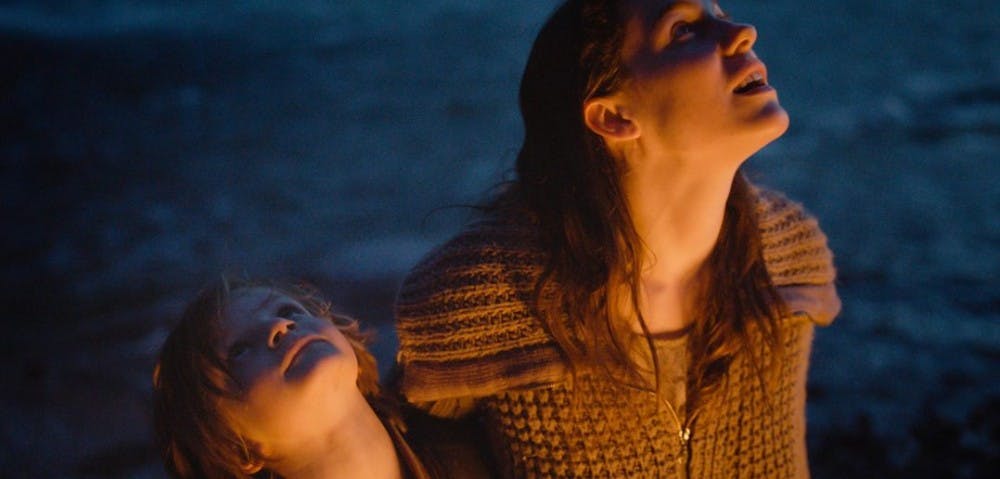Although the debut feature film from Austrian-born director Adrian Goiginger can certainly stand on the strength of its own merits, there are a couple of facts that make it a little bit more incredible. First of all, it’s a true story, which is a pretty typical bonus to anything that makes a real impact. But second is the explanation of how the director did such a masterful job of telling the story: because it is his story and he is the main character.
The Best of All Worlds (Die beste aller Welten in German) begins with a seven-year-old Adrian (Jeremy Miliker) with his mother Helga (Verena Altenberger) and her friends at a campground by the lake. All seems well and good until everyone sits down by the fire and all the adults start shooting heroin. The majority of the movie is full of contradictory images like this. Adrian seems to enjoy his childhood, and he has a fantastic relationship with his mother despite her drug addiction and her unpredictable group of friends.
But those friends truly are unpredictable. At one point, Adrian’s mother leaves him alone with a man called the Greek (Michael Pink), who immediately tries to get him to drink vodka. The Greek forcefully holds Adrian down until his mother returns and kicks him out of the house. Helga seems to have a questionable relationship with Adrian’s stepfather Günter, who is irritable and refuses to ban the Greek even though he makes Helga uncomfortable.
When Adrian gets fed up with the people around him, he daydreams about becoming an adventurer when he grows up. Like the rest of the movie, these scenes are incredibly well shot. Since this is not a fantasy-adventure movie by default, there is another layer of impressiveness to the fact that there was so much effort put into making these short scenes look like they came from an entirely different genre. They even feature a demon character that is legitimately terrifying despite its symbolic nature.
Helga really is a good mother to Adrian, and it’s delightful to watch their relationship flourish. Even though he is young, he knows that his mother is dealing with an illness, and that underneath her addiction she really does love him. She encourages him in his aspirations of becoming an adventurer and apologizes profusely to him when she falls asleep during a story he wrote. Arguably the biggest internal conflict of the movie is Helga trying to see past her addiction enough to be the best mother she can.
This conflict is also inflicted upon the viewers. In any normal situation, many people would agree that a child in a house full of drug addicts should be taken away from his mother. But every time a social worker shows up to inspect what’s going on, it’s easy to find yourself rooting for Helga anyway. She is fighting her demons, but she is still doing the best she can, and it feels like she and Adrian would be better off together despite everything.
Even though The Best of All Worlds is about one specific person’s experiences, it also does a fantastic job at summarizing the dark underbelly of Salzburg as a whole. The city is known mostly as a cultural hub due to its world-famous orchestra, but the problem is that not everyone can be rich. Alongside the fancy concert halls are run-down apartments where drug problems are rampant, and this side of the city is far too often ignored.
As the movie reaches its end, Helga is forced to make some tough decisions for the sake of Adrian. A life-threatening moment unexpectedly turns The Best of All Worlds into a story of hope at the last possible moment. In this constant back-and-forth shift of emotions lies the true brilliance of this film. Keeping hope alive throughout this story is incredibly difficult, but it shows that it’s never too late for anyone to make a change in their lives.

Follow the film on Facebook and its website (both in German).
Featured image from Die Beste Aller Welten
For more entertainment related content, visit us at Byte Bsu!




















